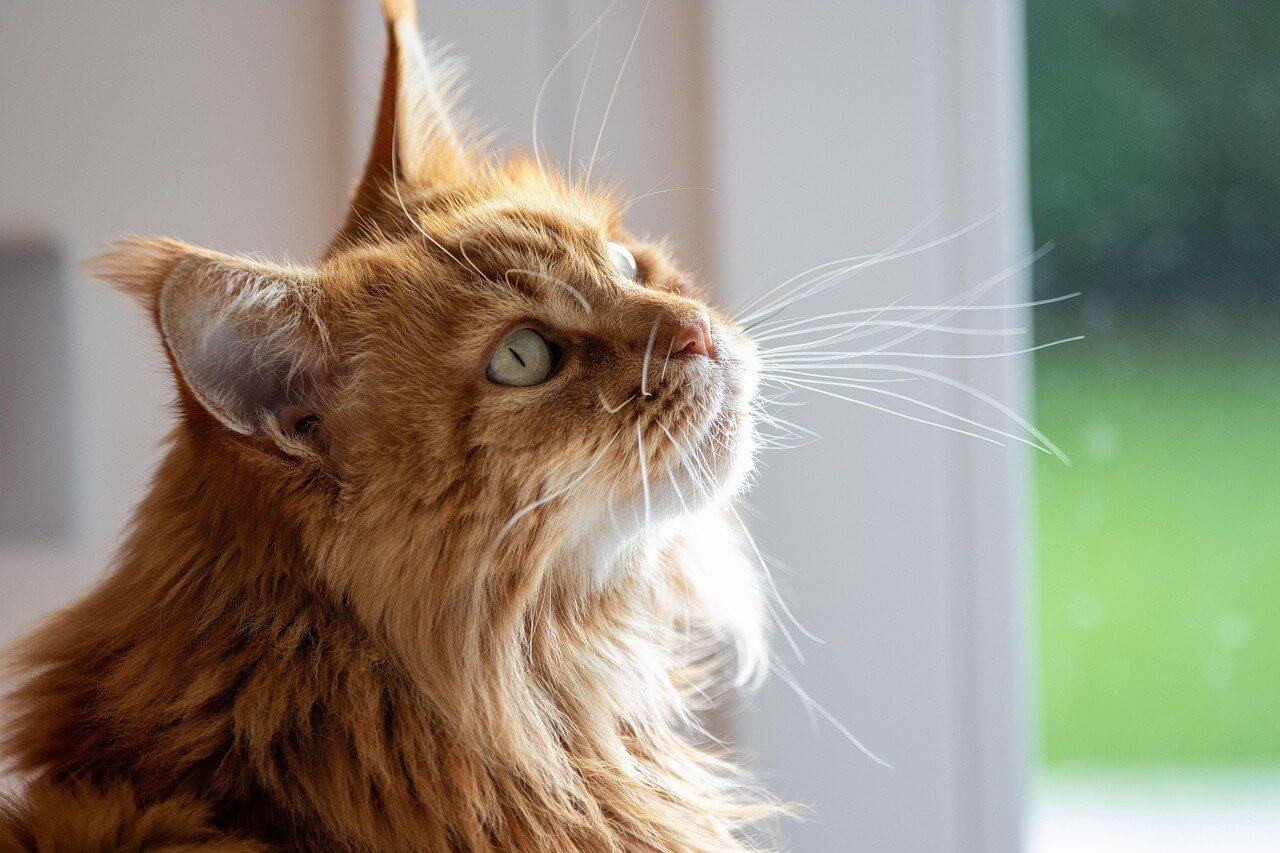Best Cats for First-Time Owners
Bringing a cat into your home is an exciting and rewarding experience, but choosing the right feline companion can feel overwhelming—especially if you’re a first-time owner. With so many breeds and personalities to consider, it’s important to find a cat that matches your lifestyle, energy level, and expectations. Some cats are more independent, while others thrive on attention and companionship. To help you make an informed decision, we’ve compiled a list of the best cat breeds for beginners, along with tips on what to look for in your perfect furry friend. Whether you’re seeking a playful kitten or a laid-back adult cat, this guide will ensure you find the purr-fect match for your household.
Top Cat Breeds for First-Time Owners
If you’re new to cat ownership, certain breeds stand out for their adaptability, friendliness, and low-maintenance nature. These cats are known for being particularly well-suited to novice pet parents.
British Shorthair:
Known for their calm demeanor and plush coats, British Shorthairs are affectionate yet independent, making them ideal for busy owners.Ragdoll:
Ragdolls are famously gentle and enjoy lounging with their humans, earning them the nickname “puppy cats.”Maine Coon:
Despite their large size, Maine Coons are friendly giants who love interacting with people and adapting to family life.Siamese:
Siamese cats are vocal, social, and thrive on attention, making them great companions for those who want an interactive pet.Exotic Shorthair:
With their easygoing nature and minimal grooming needs, Exotic Shorthairs are perfect for first-timers looking for a low-maintenance breed.
These breeds combine charm and compatibility, ensuring a smooth transition into cat ownership for beginners.
Key Traits to Look for in a First-Time Cat
When selecting a cat, there are several traits to consider that will help you determine whether they’re a good fit for your lifestyle. Understanding these characteristics ensures harmony in your home.
Affectionate Personality:
Cats that enjoy cuddling and spending time with their owners create strong bonds and enhance companionship.Low Grooming Needs:
Short-haired or hypoallergenic breeds require less brushing and maintenance, saving you time and effort.Adaptability to Change:
Cats that adjust easily to new environments or routines are ideal for first-time owners navigating pet care.Playfulness Without Overactivity:
A playful yet calm demeanor strikes the right balance between engagement and relaxation.Independence with Social Tendencies:
Cats that are content alone but still enjoy interaction offer flexibility without feeling neglected.
By prioritizing these traits, you’ll find a cat that fits seamlessly into your daily routine.
Check this guide 👉Most Friendly Cat Breeds: Best 7 Expert Tips!
Check this guide 👉Forest Cat Breeds: Best 7 Expert Tips!
Check this guide 👉Intelligent Cat Breeds: Best 7 Expert Tips!

Cat Breed | Why It’s Great for Beginners |
|---|---|
British Shorthair | Calm, independent, and low-maintenance |
Ragdoll | Affectionate, docile, and loves cuddles |
Maine Coon | Friendly, adaptable, and good with families |
Siamese | Vocal, playful, and forms strong bonds |
Exotic Shorthair | Easygoing, quiet, and requires minimal care |
Tips for Preparing Your Home for a New Cat
Welcoming a cat into your home requires thoughtful preparation to ensure their safety, comfort, and happiness. Follow these tips to create a welcoming environment for your new feline friend.
Set Up a Safe Space:
Dedicate a quiet room or corner where your cat can retreat and acclimate to their surroundings.Stock Up on Essentials:
Purchase food bowls, litter boxes, toys, scratching posts, and bedding before bringing your cat home.Cat-Proof Your Home:
Remove hazardous items like small objects, toxic plants, and exposed wires to prevent accidents.Introduce Gradually:
Allow your cat to explore one room at a time to avoid overwhelming them during the adjustment period.Establish a Routine:
Set consistent feeding, play, and cleaning schedules to help your cat feel secure and settled.
Taking these steps ensures a smooth transition for both you and your new cat, fostering trust and confidence from day one.
Common Challenges Faced by First-Time Cat Owners
While owning a cat is incredibly rewarding, first-time owners may encounter challenges as they learn the ropes. Being aware of these potential hurdles helps you address them proactively.
Litter Box Training Issues:
Some cats take time to adjust to using a litter box consistently. Patience and positive reinforcement are key.Scratching Furniture:
Cats naturally scratch to mark territory and sharpen claws. Providing scratching posts minimizes damage to your belongings.Separation Anxiety:
Some cats become anxious when left alone. Interactive toys and gradual departures can ease their stress.Managing Shedding:
Even short-haired cats shed, requiring regular vacuuming and grooming to keep your home tidy.Veterinary Care Costs:
Unexpected medical expenses can arise. Research affordable vet options and consider pet insurance for peace of mind.
Understanding these challenges prepares you to handle them effectively, ensuring a happy and healthy relationship with your cat.
Benefits of Adopting Adult Cats
While kittens are undeniably adorable, adopting an adult cat has its own set of advantages, especially for first-time owners. Adult cats often come with established personalities and habits, making it easier to predict how they’ll fit into your home.
Predictable Temperament:
Unlike kittens, adult cats’ personalities are fully formed, helping you choose a cat that matches your lifestyle.Lower Energy Levels:
Adult cats tend to be calmer and less mischievous, reducing the likelihood of chaotic behavior.Already Trained:
Many adult cats are already litter-trained and familiar with basic household rules.Less Destructive Behavior:
Adult cats are less likely to scratch furniture or knock over items compared to curious kittens.Immediate Bonding Opportunities:
Adult cats often form deep connections quickly, providing instant companionship.
Adopting an adult cat can be a fulfilling choice, offering stability and maturity that aligns perfectly with first-time ownership.
How to Introduce Your New Cat to Other Pets
If you already have pets at home, introducing a new cat requires careful planning to ensure peaceful coexistence. Follow these steps to facilitate a smooth introduction process.
Start with Separate Spaces:
Keep the new cat isolated in a separate room initially to give them time to adjust and establish their scent.Use Controlled Meetings:
Gradually introduce pets through a baby gate or cracked door before allowing face-to-face interactions.Supervise Early Interactions:
Monitor their body language closely to intervene if signs of aggression or stress arise.Reward Positive Behavior:
Offer treats and praise to reinforce calm and friendly interactions between pets.Be Patient and Persistent:
Building trust takes time, so don’t rush the process—allow relationships to develop naturally.
A slow and steady approach ensures a harmonious multi-pet household.
Fun Activities to Bond with Your New Cat
Bonding with your cat strengthens your relationship and enriches their quality of life. Engaging in fun activities together fosters trust and creates lasting memories.
Interactive Play Sessions:
Use wand toys or laser pointers to encourage exercise and mental stimulation.Teach Simple Tricks:
Train your cat to perform tricks like high-fives or sit using treats and positive reinforcement.DIY Puzzle Toys:
Create homemade puzzle feeders to challenge your cat’s problem-solving skills.Cuddle Time:
Spend quiet moments petting or brushing your cat to build intimacy and relaxation.Explore Outdoor Adventures:
Use a harness and leash to safely introduce your cat to outdoor exploration under supervision.
These activities not only entertain your cat but also deepen the connection between you and your furry companion.
Frequently Asked Questions About First-Time Cat Ownership
What should I feed my new cat?
Choose high-quality wet or dry food formulated specifically for cats, and consult your vet for personalized recommendations.
How often do cats need vet check-ups?
Most cats need annual wellness exams, but kittens and senior cats may require more frequent visits.
Can I leave my cat alone overnight?
Yes, most cats are fine alone overnight, provided they have access to food, water, and a clean litter box.
Do all cats get along with children?
Not necessarily. Some breeds are more tolerant of kids than others, so research and supervise interactions closely.
How do I stop my cat from jumping on counters?
Use deterrents like double-sided tape or motion-activated devices, and provide alternative climbing spaces.
Finding the Perfect Companion for Your Journey
Choosing the best cat for first-time owners involves understanding your needs, preferences, and lifestyle. By considering factors like breed temperament, grooming requirements, and adaptability, you can select a cat that complements your household dynamics. Remember, every cat is unique, and building a strong bond takes time, patience, and love. With proper preparation and care, your journey into cat ownership will be filled with joy, laughter, and unforgettable moments. Whether you opt for a playful Siamese or a cuddly Ragdoll, your new feline friend will bring endless warmth and companionship to your life.
Signs a Dog Eye Ulcer Is Healing: Best 7 Expert Tips! Discover expert advice on identifying healing signs, supporting recovery, and ensuring your dog’s eye health with practical tips.
Why Does My Dog Have Eye Boogers? Best 7 Expert Tips! Discover expert advice on causes, prevention, and solutions to keep your dog’s eyes healthy and clear.
Staph Infection in Dogs: Best 7 Expert Tips! Discover expert advice on identifying, treating, and preventing staph infections to keep your dog healthy and happy.
How Cold Is Too Cold to Walk a Dog? Best 7 Expert Tips! Discover expert advice on safe winter walks, protecting your dog from cold, and recognizing weather-related risks for a happy, healthy pup.





